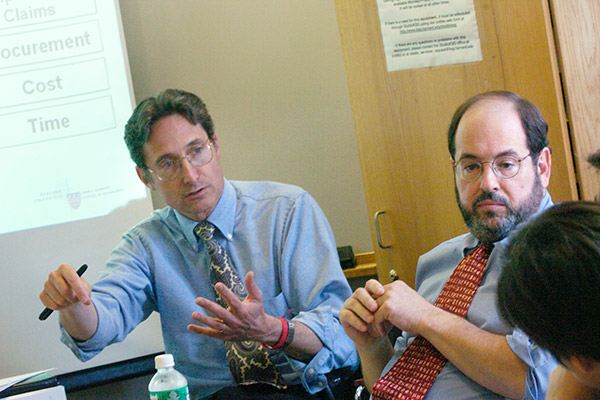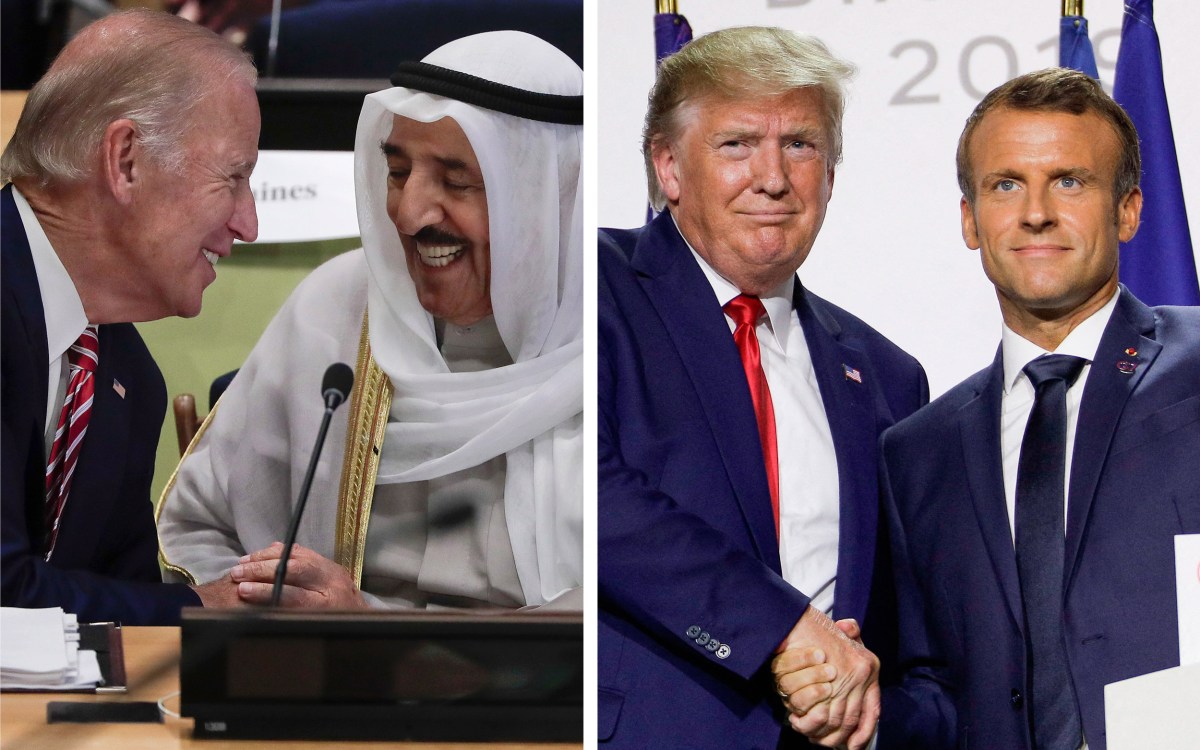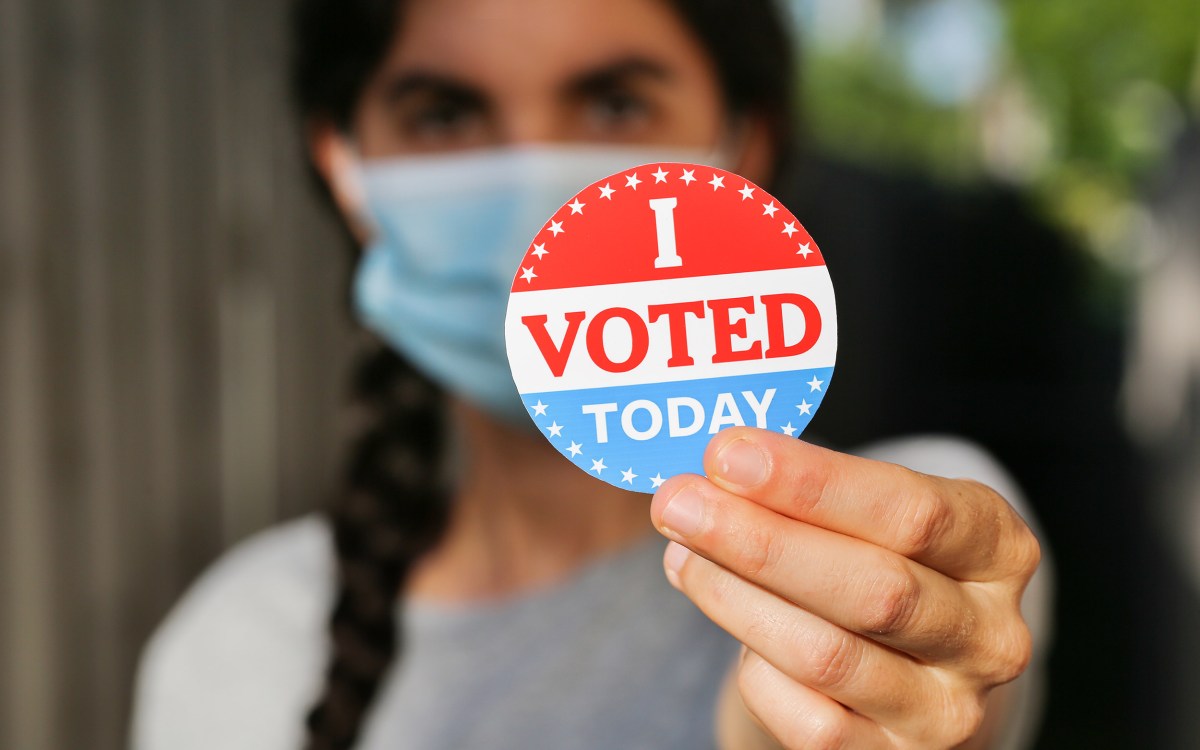
Universities across the country are preparing for Tuesday’s election and the aftermath that may occur.
Kris Snibbe/Harvard file photo
Thinking through unforeseeable election fallout
University leaders from around the nation exchange ideas at Town Hall
Tuesday’s election, widely viewed as the most consequential in decades, will be taking place amid a global pandemic, extreme polarization, and a national reckoning on race, posing challenges for the nation, including its colleges and universities.
“This is an unprecedented election in terms of the intensity of emotion that surrounds it and in terms of the expected duration of the uncertainty that will follow the actual Election Day,” said Judith McLaughlin, a senior lecturer who teaches courses on leadership and governance in higher education at the Graduate School of Education (HGSE). “We heard from people who are already experiencing stress on their campuses from big truck rallies rolling through their campuses to students who are expressing intense emotion and anxiety over the election.”
In a recent online Town Hall, 140 university officials from around the U.S. exchanged ideas about how to be better prepared for Election Day and its aftermath. The event was led by McLaughlin, Herman B. “Dutch” Leonard, and Arnold Howitt, who co-teach “Crisis Leadership in Higher Education,” a professional executive-education program offered jointly by HGSE and the Harvard Kennedy School (HKS).
A discussion paper by the three Harvard hosts identified a set of concerns for the Town Hall. Whichever candidate wins and whether the outcome is extremely close or a landslide, there is a range of potential foreseeable consequences, from severe anxiety, raucous excitement or despair, clashes of groups with opposing sentiments, or campus interventions by outside groups as well as others that are harder to plan for.
“This is an unprecedented election in terms of the intensity of emotion that surrounds it …”
Judith McLaughlin, Graduate School of Education
Among the participants were graduates of the executive education program and others who are taking part in seminars for new university presidents and presidential leadership offered at HGSE. The gathering included university leaders, police chiefs, emergency management directors, and other administrators, and they hailed from research universities, community colleges, private and public institutions, major cities, and rural campuses in both red states and blue. Some rural university officials described their institutions as “blue dots inside red doughnuts,” referring to their liberal standings in conservative communities.
Although most higher education institutions have structures and mechanisms already in place to deal with emergencies, such as a student suicide or protests, officials focused on how to deal with major crises that are unexpected, novel, and uncertain.
“It was sometimes hard to get people to pay a lot of attention to those true crisis emergencies in advance because the people who take our courses are administrators who are used to dealing with known risks and figuring out what to do about them,” said Leonard, who is the George F. Baker, Jr. Professor of Public Management at Harvard Kennedy School and the Eliot I. Snider and Family Professor of Business Administration at Harvard Business School.
“COVID has fixed that problem forever,” Leonard said. “Something can come completely over the transom at you and can be totally disruptive, and you have to be prepared for that. People have learned that they have to get ready to be highly responsive, adaptive, and nimble in real time.”

“Institutions have to get ready to be able to react to things that might occur suddenly and that no one has experienced,” said Arnold Howitt (right), who co-teaches “Crisis Leadership in Higher Education” with Herman “Dutch” Leonard (left). Kris Snibbe/Harvard file photo
Harvard University News Office
“The biggest concern is the possibility of conflict on campuses between people with opposing political views,” he said. “Regardless of who wins, many of the different individual scenarios will result in the same outcome: Some people will be unhappy, and some others will be jubilant, and they could clash.” A recent survey by Axios, for example, showed that 40 percent of college students said they would protest if President Trump wins.
In the online gathering, university officials focused on the importance of being prepared for the unknown. Thinking through options to deal with unexpected situations is extremely valuable, said Howitt, who with Leonard is co-director of the Program on Crisis Leadership at HKS. Among some structures already in place are campus police as well as mental health services for students and staff who might experience distress after the election, but officials may have to think about how to deploy officers or other staff to minimize conflict.
“Institutions have to get ready to be able to react to things that might occur suddenly and that no one has experienced,” said Howitt. “Certainly the COVID-19 experience is an example of that.”
For McLaughlin, the combination of the coronavirus pandemic, the social unrest over police violence, and the growing racial justice movement makes this election much more complicated, but she’s hopeful that after having to deal with the COVID-19 crisis in the spring, university officials are more aware of the need to put in place structures, protocols, and procedures to prepare for the unforeseeable. “There are events that because of their nature, their novelty, or their scope, organizations can’t fully plan for,” she said.
When the COVID crisis exploded in March, McLaughlin and her two colleagues were conducting the professional executive education program in crisis leadership. The four-day program has been offered for over a decade, drawing a large number of participants. The coronavirus crisis provided a real-time lesson.
“The program is always in March,” McLaughlin said, “and when we met, we still knew very little about COVID, and the conversation was about whether classes were going to be canceled for some short period of time. Two weeks later, the world changed completely.”







